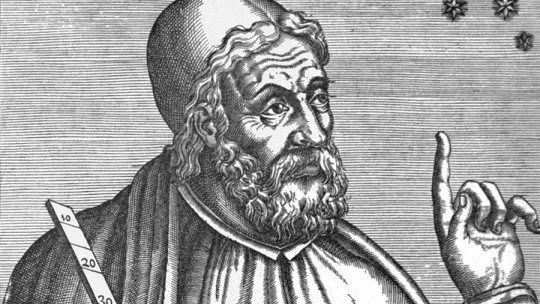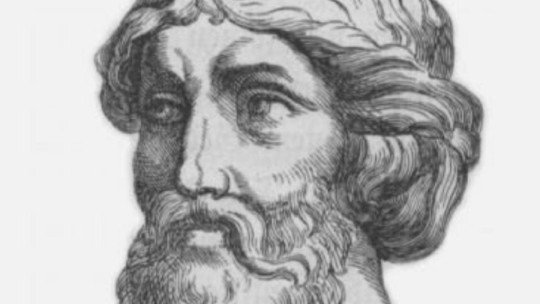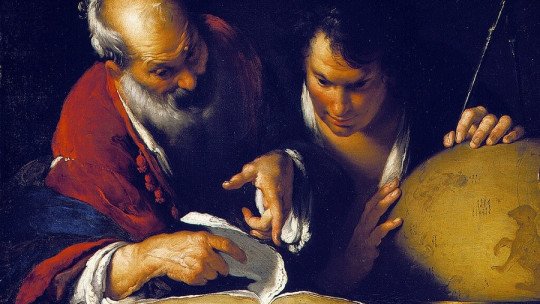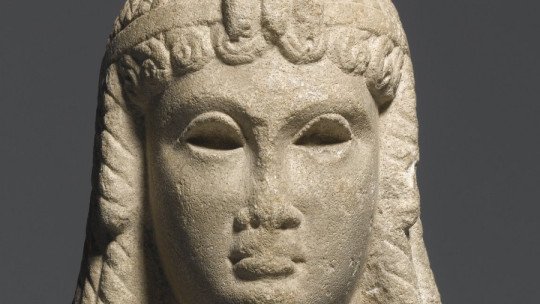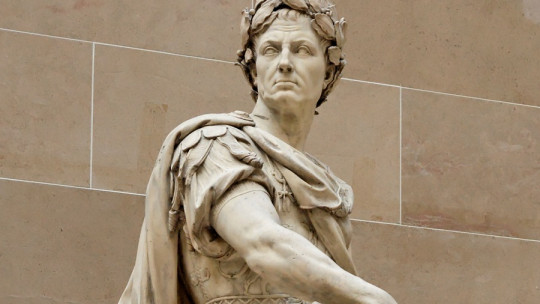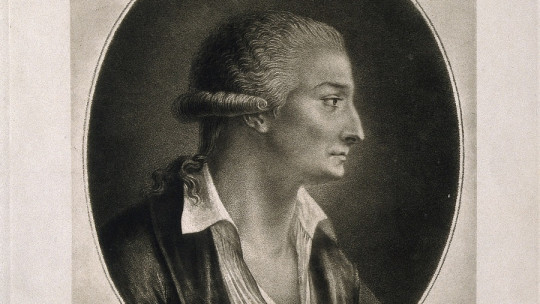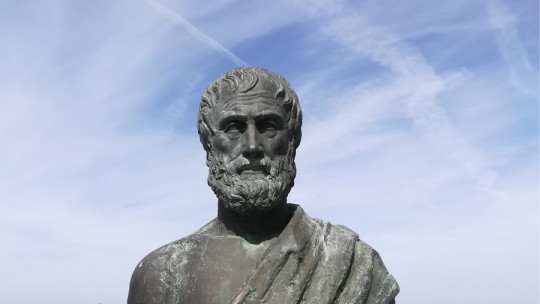Claudius Ptolemy was a Greek astronomer, mathematician and geographer born in Egypt when this country was a Roman province. The contributions of this scientist were fundamental, especially during the Middle Ages and early Renaissance.
We do not know much about Ptolemy’s life, but some of his works have transcended, especially thanks to medieval Islamic intellectuals who echoed the valuable knowledge that Claudius Ptolemenus built throughout his life.
Next we are going to talk a little about the life of this researcher of Ancient Greece through a brief biography of Claudius Ptolemy and we will see what his work was and why it was so important.
Brief biography of Claudius Ptolemy
Claudius Ptolemy was a Greek astronomer, geographer, mathematician and astrologer born in Egypt in Classical Antiquity He is known for his proposal of the geocentric model of the universe, known as the Ptolemaic system, which had notable repercussions among Christian and Muslim intellectuals of the Middle Ages and part of the Renaissance. He is also credited with creating the first maps with coordinates of major places on the planet in terms of latitude and longitude.
His ideas and theories of geography and astronomy were very important until the 16th century, when Copernicus formulated his theory that the planets revolved around the Sun, including the Earth, an idea that until then was just the opposite. Ptolemy’s work is strongly influenced by Hipparchus of Nicaea, a Greek astronomer who lived several centuries before him.
What do we know about the life of Claudius Ptolemy?
It is not well known when Claudius Ptolemy was born. There are sources that suggest that it must have been around the year 85 AD, but other authors consider that it was in the year 100 AD. This doubt persists, and will probably never be resolved, since there are not many historical records that detail what happened to his life. .
It is estimated that the place of his birth was in Upper Egypt, specifically in the city of Ptolemais Hermia , located towards the right side of the Nile River, near present-day Menshiyeh. This was one of three cities founded by the Greeks in northern Egypt, the other two being Alexandria and Naucratis.
There is not much biographical information about Ptolemy, but it can be said that he worked and lived his entire life in Egypt. The sources that provide something about the life of Claudius Ptolemy indicate that he dedicated himself to astronomy and astrology, mainly. It is also known that he was interested in mathematics and geography, and that he did numerous works where he discussed the knowledge and methods that he possessed about these disciplines.
Nor do we know much about his death, although it is believed that it occurred around the year 165 AD in the city of Alexandria, where he worked as one of its librarians and collectors of knowledge. If it were true that he was born in 100 AD, he would have died at 69 or 70 years old.
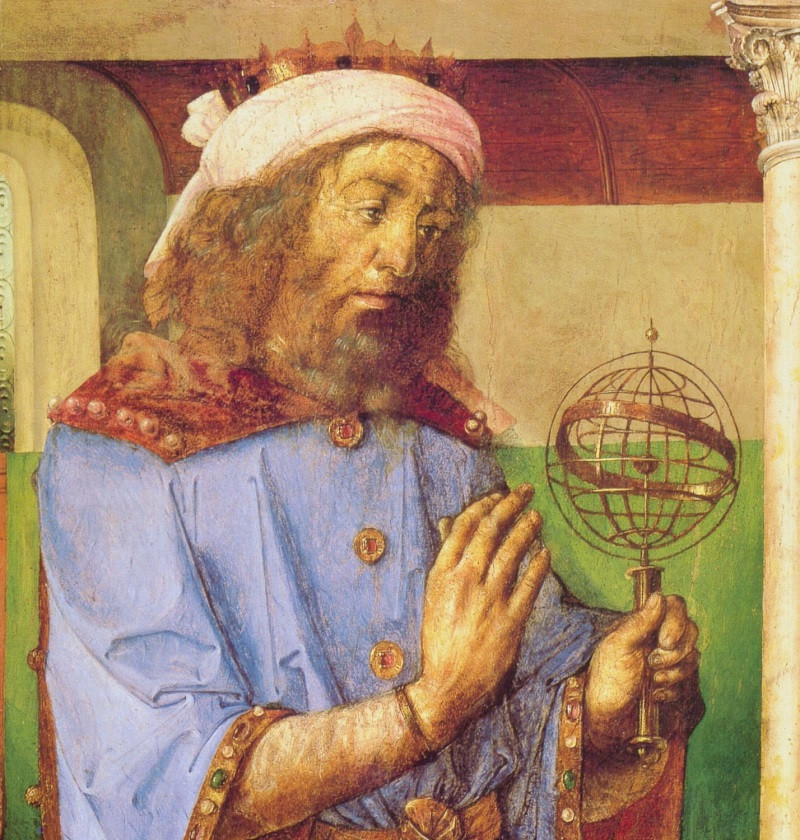
Ptolemaic empiricism
One of the most notable things about Claudius Ptolemy’s work was that He carried out his studies emphasizing empiricism He applied this approach to all of his work, which differentiated him from other scientists of the time.
Many of the descriptions that Ptolemy made did not seek to be real and exact replications of the phenomena he studied, but rather he tried to understand and justify why they occurred based on what he observed.
Influence of Hipparchus of Nicaea
It is difficult not to talk about Hipparchus of Nicaea when talking about the life of Claudius Ptolemy, since this Greek geographer, mathematician and astronomer greatly influenced the work of Ptolemy. As with Claudius Ptolemy, there is not much information about Hipparchus, it is known that he lived between 190 and 120 BC. We know the vital information about Hipparchus of Nicaea thanks to the historian and geographer Strabo and Ptolemy himself
Claudius Ptolemy described Hipparchus’ achievements and discoveries on several occasions and attributed multiple inventions to him. Among these inventions was a small telescope that was essential to improve the process of measuring angles, an instrument through which it was possible to establish that the period of the solar year lasted 365 and 6 hours, an approximation very close to what we have today. day of the duration of a natural solar year (365 days, 6 hours, 9 minutes and 9.76 seconds).
The influence of Hipparchus on Ptolemy’s work was also notable thanks to the first publication that the Greek-Egyptian made: the Almagest.
His time in the Library of Alexandria
For much of his life, Claudius Ptolemy dedicated himself to astronomical observation in the city of Alexandria This was done between the reigns of the emperors Hadrian (117-138 AD) and Antoninus Pius (138-171 AD).
Claudius Ptolemy is considered to have It is part of the so-called Second Period of the Alexandrian School which corresponds to a period in which the Roman Empire had expanded throughout the Mediterranean and surrounding areas.
Although there is not much information about it, it is believed that Claudius Ptolemy did a great job in the Library of Alexandria. This building was one of the greatest centers of knowledge in the Ancient World, and that is why Ptolemy had the opportunity to access great texts by astronomers and geometers before his time.
If this were true, Claudius Ptolemy would have been the one in charge of compiling and systematizing all that knowledge , especially those referring to astronomy, data that could date back to the 3rd century BC. He also made multiple contributions in the field of astronomy, especially regarding the movement of the planets, thanks to the extensive knowledge that he acquired in his work as a librarian.
The Almagest
Working in the library of Alexandria, Claudius Ptolemy wrote a book that would end up becoming his most important work and greatest contribution to astronomy from a mathematical perspective: the Almagest It was originally titled “Hè megalè syntaxis” (The Great Composition) in thirteen volumes, however, with the passage of time it would end up receiving the name by which it is currently known, much more emblematic.
“Almagesto” is a word that comes from the medieval term “almagestum” which, in turn, derives from the Arabic “al-magisti”, translatable as “the greatest”. The reason why it is currently called that is that, despite being originally written in Greek, it aroused a lot of interest in the medieval Islamic world. The Caliph al-Mamun (786-833) had it translated into Arabic in the year 827, and over time it would reach Christian Europe in this language.
His works on astronomy and astrology
The Almagest was inspired by the study of Hipparchus of Nicaea while Ptolemy worked in the Library of Alexandria. The work refers to the fact that the Earth is the center of the universe and, for this reason, it remains motionless The Sun, the Moon and the stars revolve around our planet and, according to Ptolemy, all celestial bodies draw perfectly circular orbits. In this work he also tells us about the measurements of the Sun, the Moon and a set of celestial bodies that amounted to a total of 1,028 stars.
In ancient times it was very common for people to believe that personality was influenced by the position of the Sun, the Moon or other celestial bodies at the time of birth. Astrology was a deeply rooted belief shared even among the scientific elites of the time, who considered it a complete science. Ptolemy was no exception.
This Greek-Egyptian mathematician produced a famous treatise on astrology called “Tetrabiblos” (Four Books), an extensive work in which he talks about the principles that govern astrology and horoscopes. In her defended the theory that illnesses, diseases and other health problems were caused by the influence of the Sun, Moon, stars and planets Each star had influence on specific parts of the body.
His contributions to optics
One of his most interesting works is the one called “Optics”, composed of five volumes where It deals with the theory of mirrors and, also, the reflection and refraction of light
He took these phenomena into consideration in his astronomical observations and it can be said that he was advanced in this aspect, since few scientists took into consideration luminous and visual phenomena as he did in Grecoclassical Egypt.
His research on geography
Another of his most important works was “Geography”, a text that he completed since Marinus of Tire (60 AD-130 AD) could not finish it It is a compendium of mathematical techniques to draw more precise geographical maps, compiling different projection systems and collection of coordinates of the main points of the known world at that time. Although his maps were a precedent for developing more precise maps, Ptolemy made the mistake of exaggerating the extent of Asia and Europe.
Their maps are one of the oldest evidence of topographical maps with coordinates, longitude and latitude. Although they had important errors, it must be said that they were a great advance for the cartography of their time. His work served to perfect map projection methods and he presented the terms equivalent to what we know today as parallels and meridians, drawing the imaginary lines of altitudes and longitudes.
- Related article: “The 12 auxiliary sciences of Geography”
Use of simple language
Scholars of the figure of Claudius Ptolemy highlight the simple language of the works that have survived the passage of time. Ptolemy was aware of the importance of his message being simple, understandable to all who read his works, whether they were cultured men such as great mathematicians or simple people with a minimum of literacy
Ptolemy wanted the knowledge he knew to reach many people, regardless of their mathematical background. It could be said that he was an advance and had a reasoning typical of cathedral thought, wanting what he had discovered to transcend time. He wanted what he knew at the time to help people in the future discover more from what he discovered.
He knew that the easier his works were to understand, the more translations would be made and the more influence he would gain This is why it is said that, thanks to this, several centuries later the knowledge collected and formulated by Claudius Ptolemy would serve the Genoese explorer Christopher Columbus, especially those relating to the calculation of geographical distances and maps of very distant regions. Ptolemy believed that the Earth was a sphere, which is why Columbus believed it was possible to go west to India.

